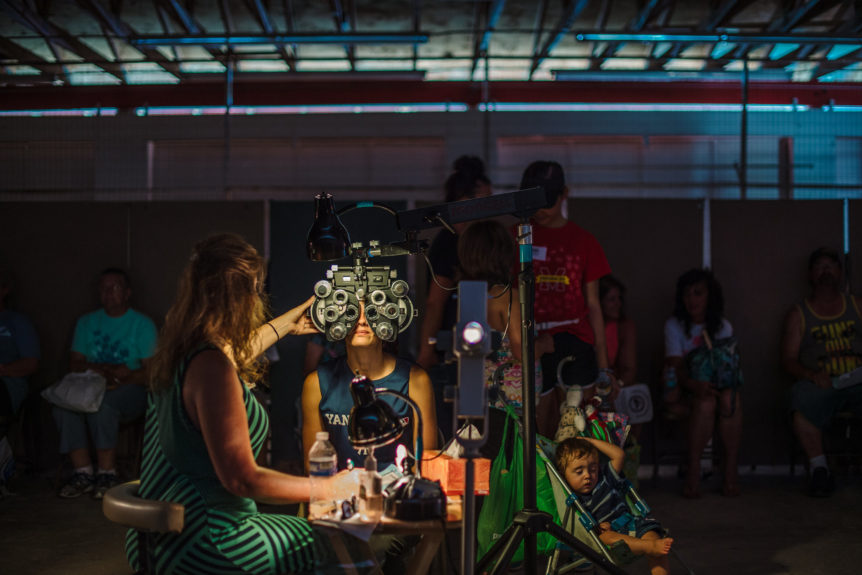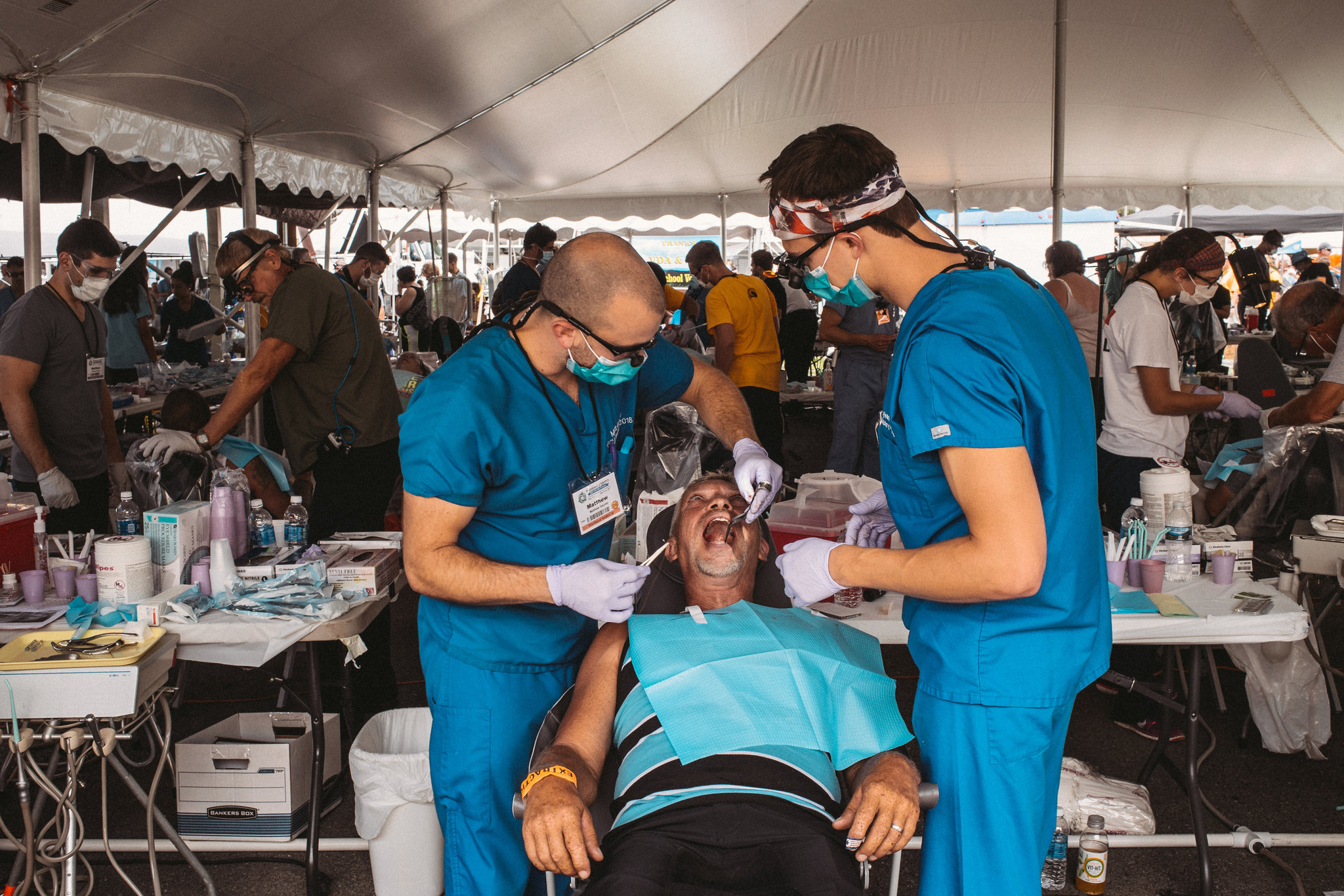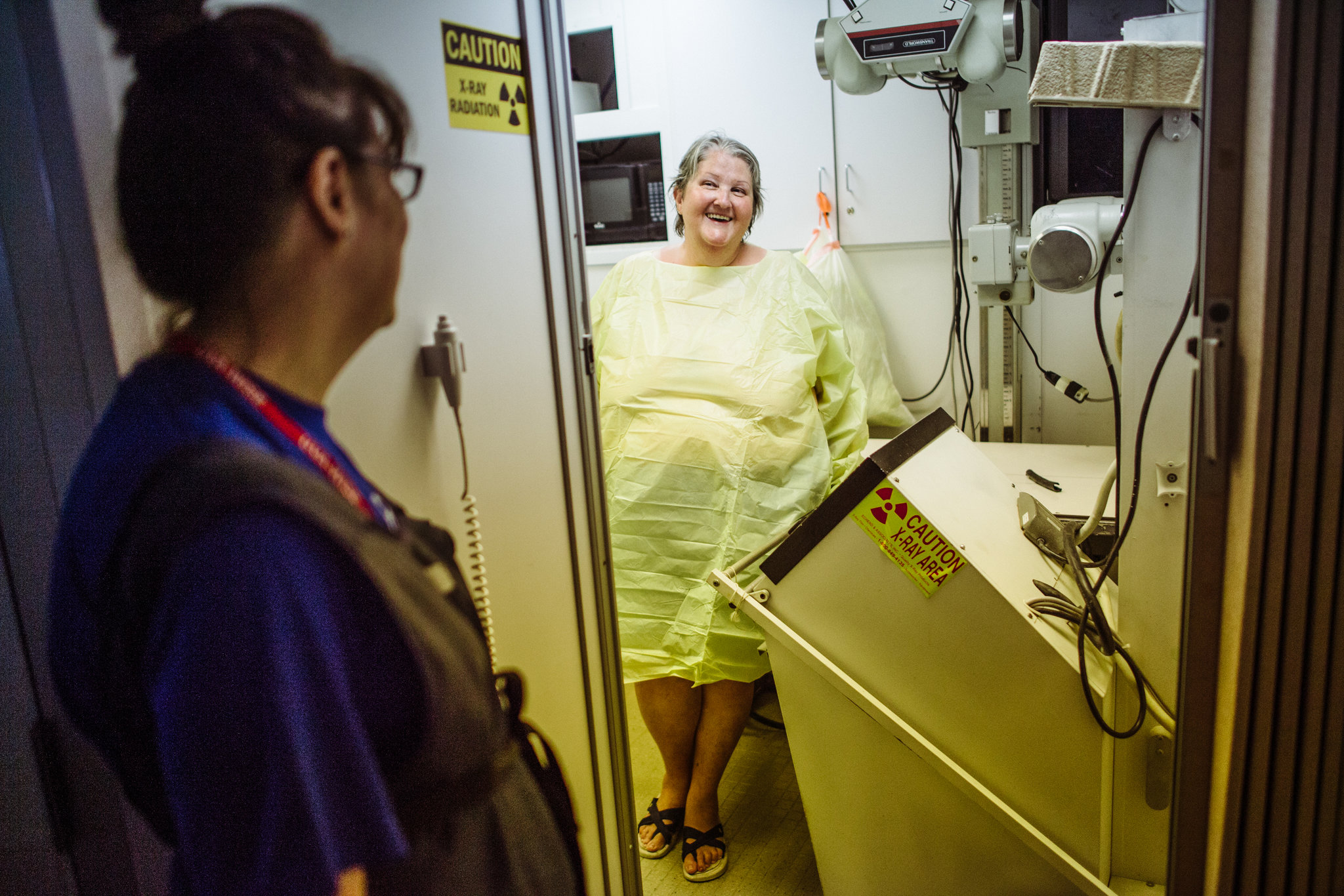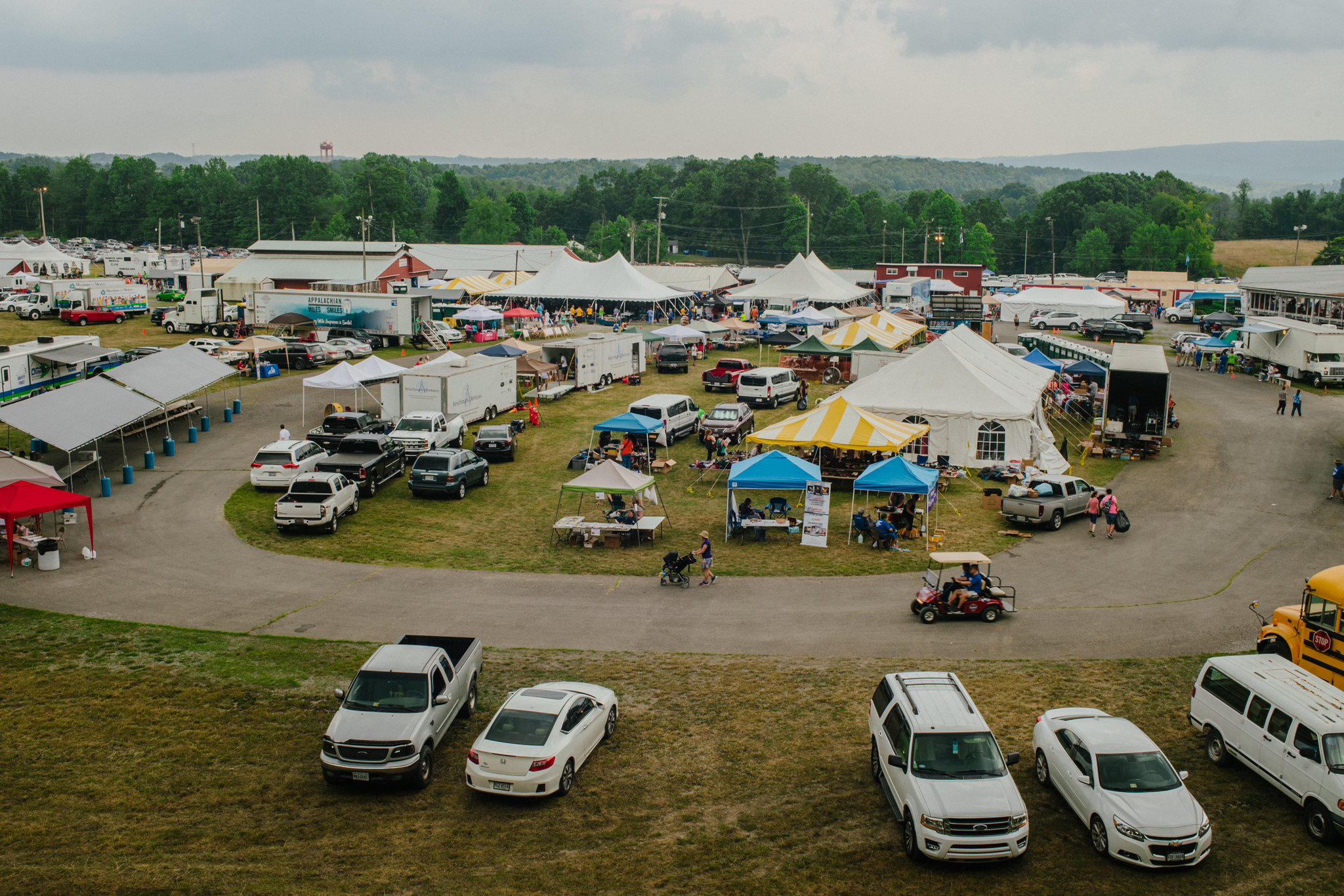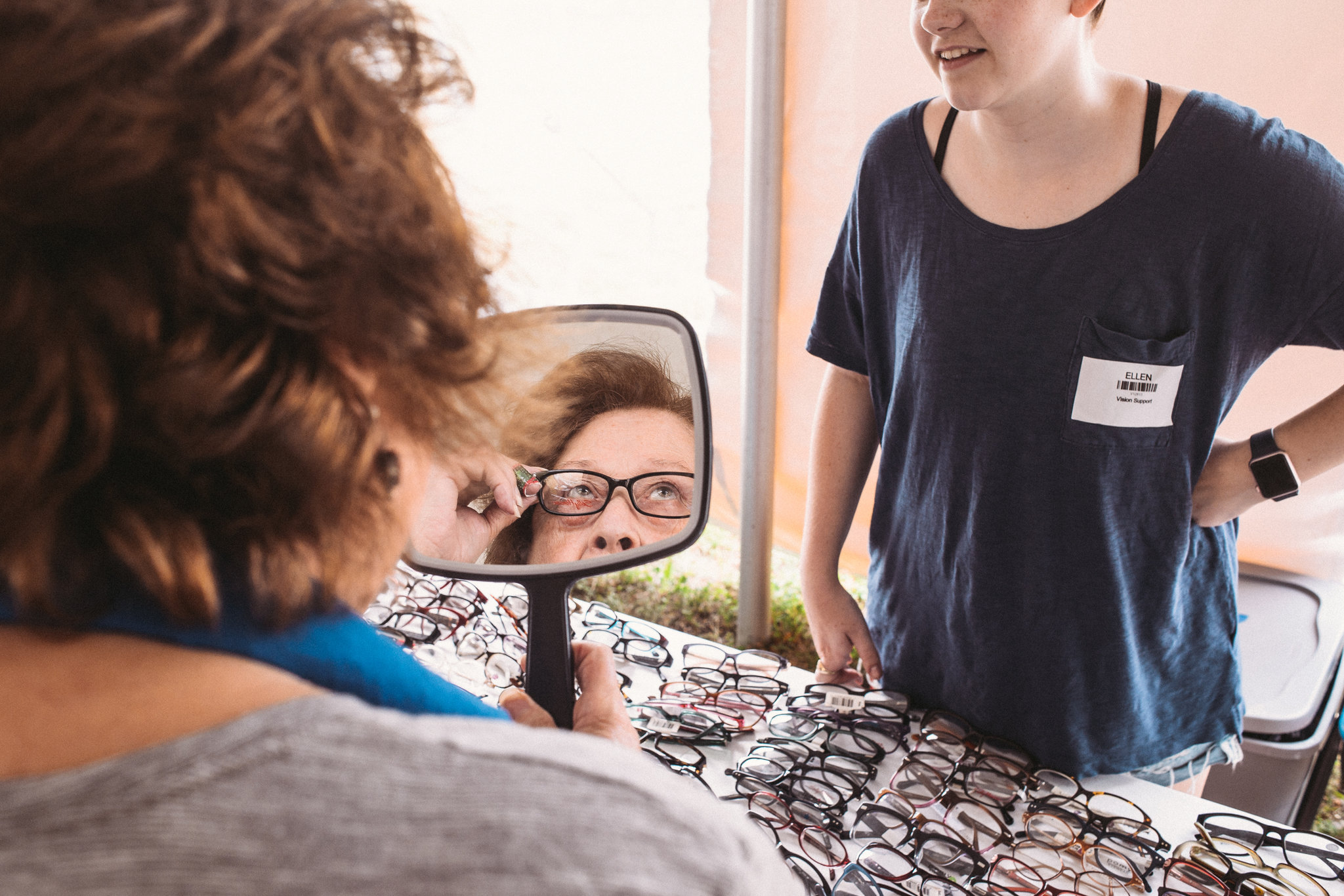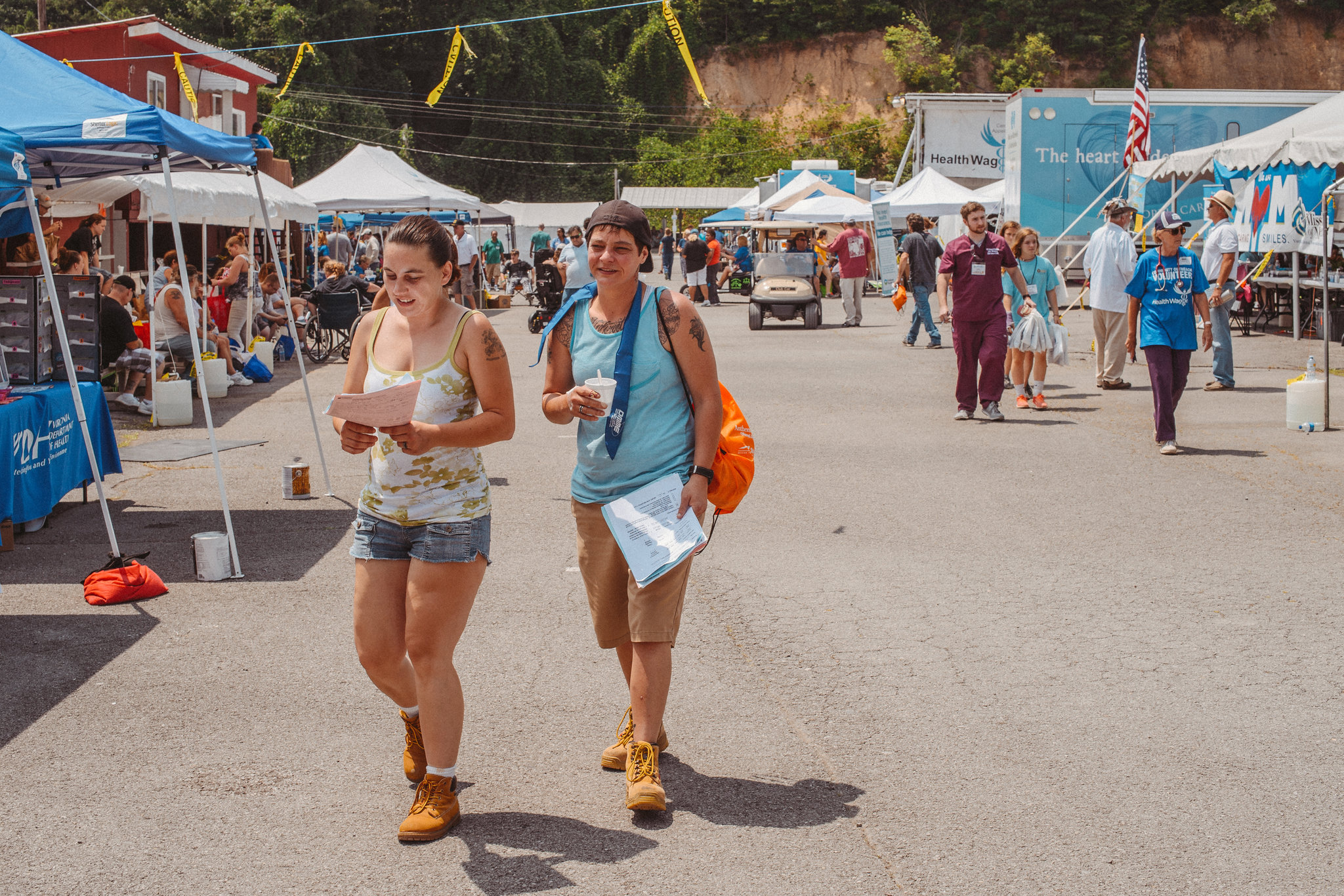WISE, VA |
Original article can be found at: https://www.nytimes.com
Anthony Marino, 54, reached into his car trunk to show a pair of needle-nosed pliers like the ones he used to yank out a rotting tooth.
Shirley Akers, 58, clutched a list of 20 medications she takes, before settling down to a sleepless night in the cab of a pickup truck.
Robin Neal, 40, tried to inject herself with a used-up insulin pen, but it broke, and her blood sugar began to skyrocket.
As the sun set in the mountains of southwest Virginia, hundreds of hurting souls were camped out or huddled in vehicles, eager for an early place in line when the gates swung open at 5 a.m. for the nation’s largest pop-up free clinic.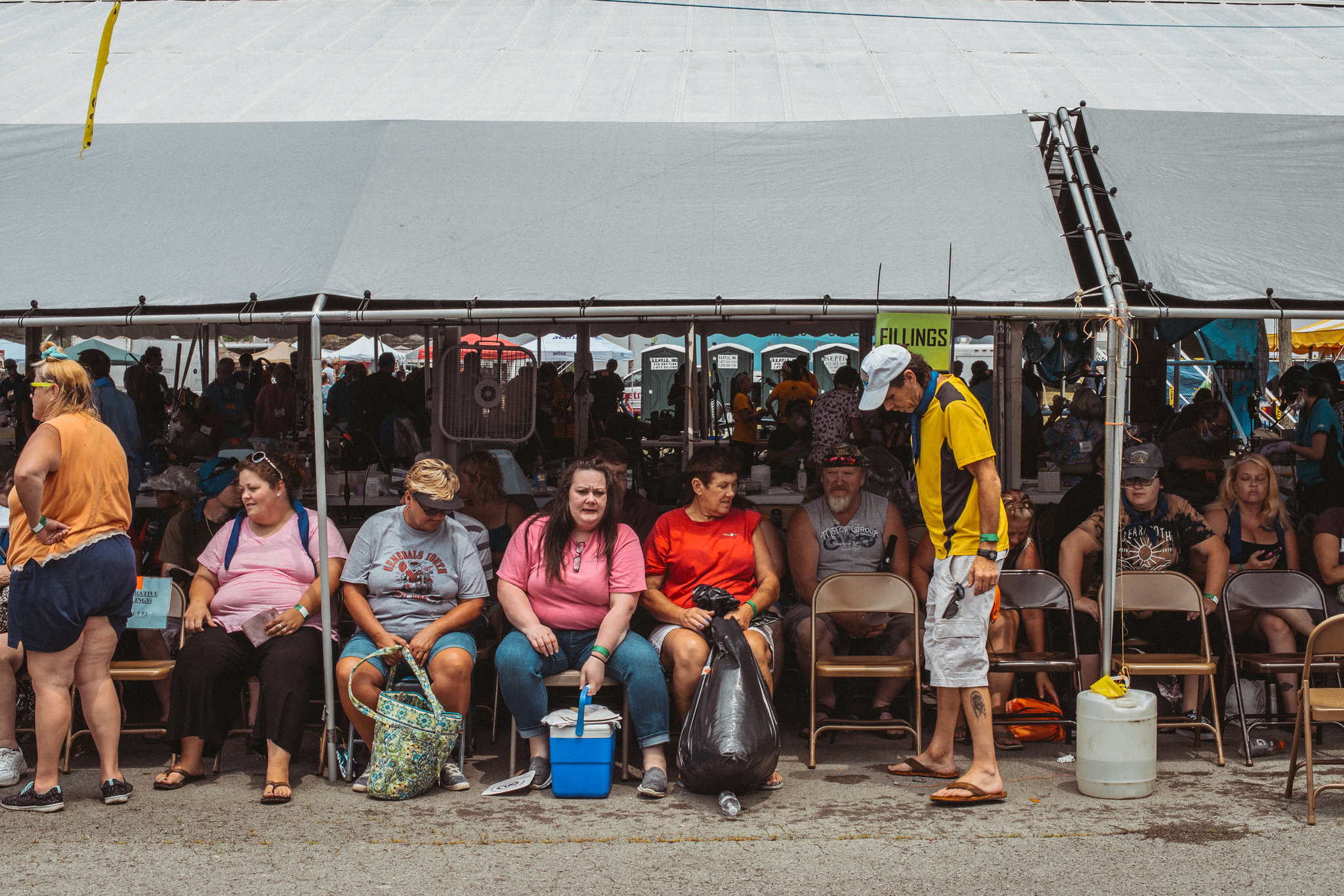
The Remote Area Medical Expedition, held at a county fairground in Appalachia over three days ending Sunday, drew more than 2,000 people who endured high heat and long waits for basic health services. It was a dispiriting reminder that as Congress flails around for health plans that could cost millions of people their insurance, many more don’t have much or any insurance or access to medical care to lose.
Four years into the rollout of the Affordable Care Act’s major provisions, 29 million Americans still lack health insurance. Millions live in states like Virginia that did not expand Medicaid to childless adults among the working poor, as the law allowed. Even for people helped by government programs like basic Medicaid, veterans’ care and disability, there are many gaps: Low-income people struggle to afford co-payments, the gas to drive to a doctor and prescription drugs.
“Expect Delays. Heavy Traffic Area,” a sign flashed on the normally sleepy country road before the Wise County Fairgrounds.
Patients passed the command tent of the charity that runs the clinic, Remote Area Medical, emblazoned with a plea and a promise: “Stop the Suffering.” The group, staffed by medical volunteers, has treated more than 700,000 people at free clinics around the country and overseas since 1985.
The bodies of the visitors told the story. They came in wheelchairs pushed by overweight children. Some carried portable oxygen. They smiled with lips together to hide missing teeth. One barrel-chested man with a long beard wore a T-shirt quoting the Bible as he hobbled along with a tall staff.
Joyce Bays, 49, waiting with scores of others in a tent to see a dentist, explained to Matthew Culbertson, 27, that eating with no teeth could be managed.
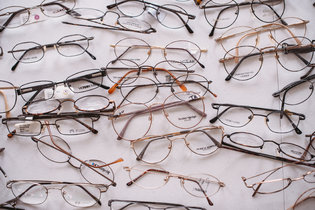 “You take a hammer and you tenderize your meat before you cook it, then you cut it up in small pieces,” Ms. Bays, from Gate City, said. She was being fitted for dentures after years of near toothlessness.
“You take a hammer and you tenderize your meat before you cook it, then you cut it up in small pieces,” Ms. Bays, from Gate City, said. She was being fitted for dentures after years of near toothlessness.
Mr. Culbertson, from Coeburn, said that he received disability benefits for mental health issues, but that the plan did not cover a dentist. He needed several rotted and broken teeth extracted.
“The past several months the toothaches have been so bad I’ve literally been counting down the days and praying I can make it through,” he said.
Only 16 percent of the patients who visited the clinic were employed full time, according to data collected by Remote Area Medical, known as RAM. Twenty-five percent were disabled. Ninety-two percent were white.
Dr. Joseph F. Smiddy, 75, a lung specialist who has volunteered at every RAM clinic here since the first in 1999, said people’s health was getting worse, not better, as the regional economy shed well-paying jobs, primarily in coal, and diets and lifestyles deteriorated.
“We’re sicker here than in Central America,” said Dr. Smiddy, who has volunteered on charity health trips there. “In Central America, they’re eating beans and rice and walking everywhere. They’re not drinking Mountain Dew and eating candy. They’re not having an epidemic of obesity and diabetes and lung cancer.”
In a lead-lined truck he had modified to perform chest X-rays, Dr. Smiddy saw Sherman Devlin, 51, a heavyset former miner complaining of shortness of breath.
“I don’t have no income,” Mr. Devlin said, speaking with difficulty. “I’m a broke-down coal miner. I can’t do what I used to do.” Even though he received Medicaid, he said it did not cover much.
Breathing tests showed little lung impairment. “I don’t want to hurt your feelings,” Dr. Smiddy told him dryly, “but you’re nowhere near qualifying for black lung or Social Security” disability. He diagnosed sleep apnea. He told Mr. Devlin that a CPAP breathing machine would make him feel “dramatically better.”
“If my insurance covers it,” Mr. Devlin said.
Politicians visited the fairground, mainly Democrats, raising the health care issue in a region that voted overwhelmingly for President Trump.
Making his way through a livestock barn where sheets divided makeshift examining rooms, Gov. Terry McAuliffe argued, as he has fruitlessly through four years in office, that if the Republican-controlled General Assembly in Richmond would expand Medicaid, 400,000 low-income Virginians would be helped. Republicans, who hold all seats in southwest Virginia, say the Affordable Care Act is a failure.
Mr. McAuliffe, a Democrat, shook hands with Larry McKnight, 37, an out-of-work auto mechanic whose nerve-damaged shoulder makes it impossible to lift his 11-month-old baby.
“I really think they don’t have any clue what’s going on,” Mr. McKnight said of Washington politicians. “You watch the news and it’s two sides pitted against each other, which in turn makes them pitted against us, the normal person.”
“I really think the only thing that could truly help the country is single payer,” he said.
Dr. Smiddy grew up in Wise, a picturesque county seat on the Daniel Boone Heritage Trail. He said that the United Mine Workers of America had once operated one of the best hospitals in the state here, but that it had closed after mine owners drove out the union.
“The people of this area have been told by the politicians and President Trump that coal is coming back,” Dr. Smiddy said. “They believe that. They’ve been told that Obamacare is no good. They believe that. They believe that Trump’s going to bring them TrumpCare.”
“We all know when we take 32 million people out of the system” — an allusion to a Congressional Budget Office analysis of how many would lose coverage under one Republican plan — “that these people will be the first to go,” he said.
Mark Johnson, 56, a disabled truck driver from Coeburn who came to have 10 teeth pulled, said the president’s opponents had created distractions with charges about Russia. “They won’t leave him alone enough to do anything,” he said.
Ms. Neal, whose insulin pen had broken overnight, passed members of the Gideons handing out New Testaments.
Ms. Neal had driven six hours from Hickory, N.C., with her wife, Angel Neal, 35. Both women have chronic conditions and struggle in low-paying jobs without health coverage to afford medicines.
Robin Neal has fought Type 1 diabetes since age 10, she said. Angel Neal, who drives a forklift, has pancreatitis. Her medication costs $500 for 70 pills, she said, beyond her means. She had gone two years without the drugs.
Both women wanted doctors’ prescriptions for the free pharmacy on the grounds.
In a backward baseball cap with a tattoo of stars and musical notes on her neck, Robin Neal, looking unwell, was interviewed by a triage nurse. Checking her blood sugar, the nurse saw a reading of 529 and immediately raised an arm for attention.
“You need to go to the E.R.,” she told Ms. Neal. Emergency medical technicians arrived to take her to a MASH-style hospital tent for emergency care.
Meanwhile, Angel Neal was suffering abdominal pain and nausea. Cindy Straub, a nurse practitioner who examined her, called them “pancreatic symptoms” and said she, too, needed to go to the emergency tent. An aide walked her over. She was placed on a bed next to her spouse.
Dr. Joseph A. Aloi, an endocrinologist from Wake Forest School of Medicine, examined both women. Standing outside the tent later, he said: “Insulin is coming up on its 100-year anniversary. People know how to take care of their diabetes. They can’t afford the insulin. They run out, they spiral out of control and end up in the hospital.”
After an hour in the tent hooked up to intravenous drips, the women were discharged. They walked the central artery of the fairground, passing medical personnel inviting them to presentations about breast cancer and opioid abuse. The Neals skipped these come-ons. They headed to a big, crowded pavilion offering eye tests. Robin Neal, whose vision was tested at 20/100, desperately needed a pair of the free eyeglasses RAM offered. She joined another long line on the sweltering day.
Correction: July 23, 2017
A picture caption with an earlier version of this article misspelled the surname of one of the dental students who drove from Richmond to provide free care. He is Matt Gaynier, not Gainer.
A version of this article appears in print on July 24, 2017, on Page A9 of the New York edition with the headline: When Health Law Falls Short, the Desperate Line Up at Tents. Order Reprints| Today’s Paper|Subscribe
Share this Post

